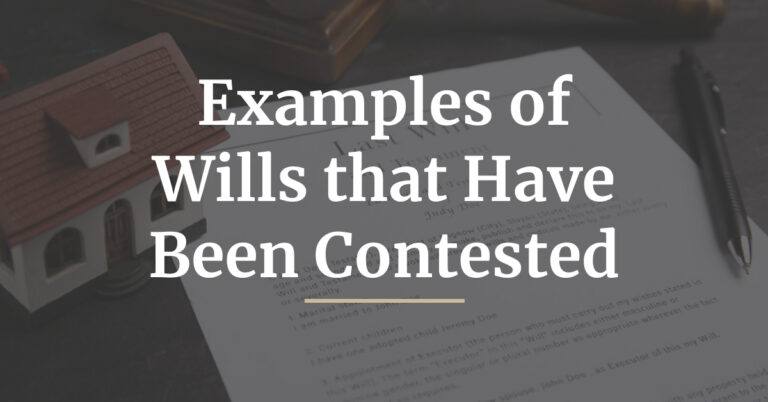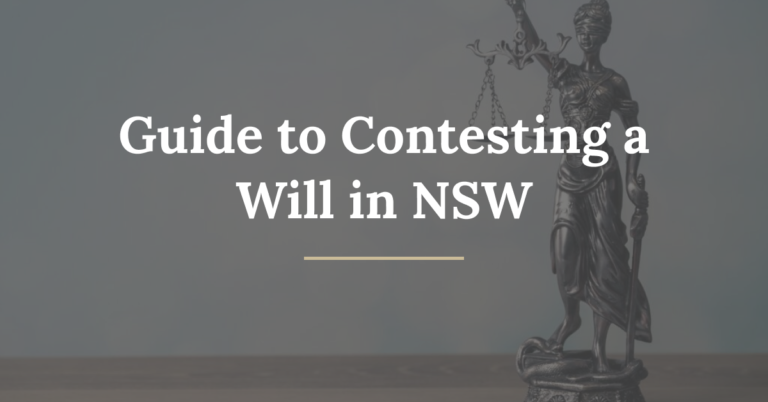Leading Wills and Estate Lawyers in Sydney, NSW

Leading Will Dispute Lawyer in Sydney, New South Wales
Our lawyers specialise in will and estate disputes.
We are a national law practice serving clients in all States and Territories of Australia.
We have a reputation for consistently delivering successful results.
Our mission is to assist our clients to claim or protect an interest in a deceased estate through a combination of expert advice, representation, and strategy. We pride ourselves on providing the following customer-centric objectives:
- Developing a professional client-lawyer relationship built on trust.
- Achieving the best outcome for the client.
- Delivering quality services to the client efficiently and effectively.
These objectives best ensure client satisfaction time and time again.
With over a decade of legal experience, our founder and director applies a unique combination of expert knowledge (as seen in our comprehensive blog page), dedication, and strategy to every stage of a matter with the sole objective of delivering the best results for his clients.
Have Our Wills and Estate Lawyers Sydney On Your Side
Experts in Our Specialised Area of Law
Experts in Our Specialised Area of Law
We are inheritance lawyers who specialise in wills and estate disputes. We assist clients to claim or protect their interests in an estate through a combination of expert advice, representation, and strategy.
High Level of Client Care and Professionalism
We understand that the death of a family member or the loss of a loved one can bring grief and heightened emotions. We acknowledge that inheritance claims can compound this grief and may cause or deepen personal or family conflict. We provide dedicated client care, tailored to each client’s particular circumstances, to support them through the process while working together to deliver the best outcome possible for that client.
Proven Track Record of Winning Cases
We consistently deliver successful results for our clients. Our client satisfaction is evident through our reviews, testimonials, and word-of-mouth referral channel, which is a primary source of new clients.
No Win, No Fee
In some cases, we may be able to offer a client a Conditional Costs Agreement, otherwise referred to as a “no win, no fee” agreement. A “no win, no fee” agreement means that a client will not have to pay any of our fees unless and until a successful outcome is achieved*.
*Whilst a client subject to a “no win, no fee” agreement will not have to pay our fees until and unless they achieve a successful outcome, the client is still liable to pay disbursements and barrister’s fees throughout the course of the matter. Whether we can offer a “no win, no fee” agreement will depend on the facts and circumstances of each case.
How Empower Wills and Estate Lawyers in Sydney Can Help You
While our Head Office is located in Sydney and we assist clients with all disputes involving wills or deceased estates in Sydney, we are a national practice and service clients in all States and Territories of Australia.
From those who are seeking to claim a larger share of a friend or family member’s estate to those looking to protect their share of an estate from a claim brought by another person.
We also advise and assist clients to challenge or defend the validity of the will itself, where, for instance, there are suspicious circumstances surrounding the preparation or execution of the will, or questions in relation to the mental capacity of the will-maker (known as a “testator”) at the time the will was made, or where there is evidence of pressure, coercion, undue influence, or fraud.
In Australia, a person can leave their assets to anyone they choose when they die, referred to as “testamentary freedom”. In some circumstances, however, the law can interfere with the deceased’s testamentary freedom and effectively rewrite the terms of the deceased’s will by altering the distribution of the deceased’s estate. This is referred to as a “family provision order”.
While the law is different in each State and Territory of Australia there are similarities across all jurisdictions. In NSW for example, the Succession Act 2006 (NSW) prescribes the requirements that must be satisfied in order to obtain a “family provision order”.
To challenge a will means to question the validity of the will itself. There are many grounds on which a will may be brought into question.
Questions may arise where a family member who takes an unusually large benefit under the will was present when the deceased gave instructions to their lawyer, or more concerningly, where that family member prepared the will themselves.
Questions often arise in relation to the execution of the will itself or in relation to the deceased’s mental capacity at the time of making their will, otherwise referred to as “testamentary capacity.” As the Australian population’s life expectancy increases, so do the rates of dementia and Alzheimer’s in the community, and so do questions and claims in relation to testamentary capacity.
Questions may also be raised in relation to potential elder abuse, where an elderly testator has been pressured or coerced into changing their will.
The Difference Between Contesting or Challenging a Will in NSW
Contesting a will typically involves a question of quantum, that is, whether a person wants to claim a larger share of an estate or defend a claim by another person. A claim of this nature is known as a “family provision claim.”
On the other hand, challenging a will typically involves a question of quality – that is, the validity of the will itself, including circumstances surrounding its origin, execution, and its meaning (otherwise referred to as its ‘construction’).
In NSW family provision claims are made under the Succession Act 2006 (NSW). To have any prospects of success, the person bringing the claim must establish the following:
- They are an “eligible person,” and
- In circumstances where the person is: (a) a former spouse of the deceased person, (b) a person who was at any particular time wholly or partly dependent on the deceased person and who is a grandchild of the deceased person or was, at that particular time or at any other time, a member of the household of which the deceased person was a member; or (c) a person with whom the deceased person was living in a close personal relationship at the time of the deceased person’s death, having regard to all the circumstances of the case (whether part or present), there are factors which warrant the making of the application, and
- Adequate provision for the proper maintenance, education, or advancement in life of the person in whose favour the order is to be made has not been made by the will of the deceased person, or by the operation of the intestacy rules in relation to the estate of the deceased, or both.
Once the claimant has commenced the family provision claim to contest the will, the matter may proceed to a hearing where each party gives evidence to support their case. In reaching its decision, the Court will consider the following:
- Your age
- Your character
- What kind of relationship you had with the deceased
- What kind of responsibilities does the deceased owe to you
- Your personal financial situation at the time of contesting, including any future financial needs
- Whether you are financially supported by another person
- Whether you have any physical, mental or intellectual conditions
- If the deceased provided you with any maintenance or support prior to death
- The value and location of any property and other items included in the deceased’s estate
- Any contributions you have made in the past that have increased the value of the deceased’s estate
- Claims that have been made by other people on the estate in question
- Any customary law that applies if the deceased was of Aboriginal or Torres Strait Islander descent
- Any other matters deemed relevant by the Court
Once all of the above factors have been considered, the Court will make a ruling on the dispute, and the Court has discretion whether or not to make an order. It is also in these final stages that the cost of contesting a will and the responsibility for payment of those costs is determined if the parties have not reached an agreement as to costs by this stage.
For a will to be valid, the person making or changing the will (known as the ‘testator’) must have testamentary capacity at the time of making or changing their will. To have testamentary capacity, the testator must have a sound mind, memory, and understanding of what they are doing.
Importantly, testamentary capacity is a legal test and not a medical test. While medical evidence may be helpful to provide a diagnosis of illnesses and a medical chronology, it is not the only evidence that a court will consider when tasked with assessing testamentary capacity. Among the wide range of evidence that a court may consider when determining testamentary capacity include the file notes of the will-drafter lawyer who took instructions and prepared the will (to determine whether they conducted any assessment of testamentary capacity at the time the will was made) and evidence from family members and friends (who are often in the best position to identify and give evidence in relation to any changes in a testator’s cognitive ability or behaviour over time).
Depending on the nature and extent of a disorder, a dispute in relation to testamentary capacity can often be resolved between the parties without the need for court intervention.
Once a question in relation to testamentary capacity is raised, the onus is on the propounder of the will (typically the executor) to affirmatively prove that the testator had testamentary capacity.
To prove that a testator had testamentary capacity to make a valid will, a person must show that the testator understood the consequences of creating a will at the time of its creation. The law is clear on this point and the courts have repeatedly referred to the 1870 case of Banks v Goodfellow (1870) LR 5 QB 549. The authority states that the will maker must understand what he or she is doing. It is essential that the will maker:
- Understands the nature of the act of will making and its effects;
- Understands the extent of the property of which he or she is disposing in the document;
- Is to be able to comprehend and appreciate the claims to which he or she ought to give effect; and with a view to that object;
- That no disorder of the mind shall poison his affections, pervert his sense of right, or prevent the exercise of his natural faculties – that no insane delusion shall influence his will in disposing of his property and bring about a disposal of it which, if the mind had been sound, would not have been made.
If the court is not satisfied that the testator had testamentary capacity in respect of a particular will, the court may “pass over” that will and grant probate for an earlier valid will, or if there is no earlier valid will, determine that the testator died without a valid will (referred to as dying “intestate”) and grant letters of administration to the estate’s administrator or legal representative.
The concepts of undue influence and fraud in succession law are distinct concepts.
The concept of undue influence relates to circumstances where a person makes a will against their wishes, in other words, a will made under “coercion”. A will is made under coercion if the will that was created was not the will that the person would have made if the coercion had not existed. Coercion may arise where one child has placed considerable pressure (either verbal or through conduct and/or actions) on their parent so as to coerce the parent into leaving them a larger share of the estate. The fact that the parent acquiesces and eventually agrees to make the will in those terms, does not cure the preceding undue influence. The onus of proving undue influence is on the person alleging it and it can often be difficult to prove. A person who alleges undue influence may also face significant cost consequences if they unsuccessfully assert undue influence.
Fraud on the other hand is more egregious and typically involves the creation of a will that is based on misleading or false facts or circumstances.
Suspicious circumstances are circumstances that cast doubt over the testator’s “knowledge and approval” of the contents of their will.
Once suspicious circumstances are raised, the person propounding the deceased’s last will (typically the executor) is required to prove that the testator “knew and approved” of the contents of the will.
When considering whether suspicious circumstances exist, a court will look at a number of factors including but not limited to the circumstances surrounding the preparation of the will; whether the beneficiary was instrumental in the preparation of the will; the extent of any physical or mental impairment, if any, of the testator; whether the will in question constitutes a significant change from a prior will; and whether the will, generally, seems to make testamentary sense.
If Any of These Situations Apply To You, Then We Can Help
You’ve been left out of a will altogether
You've received less than your siblings
You were "passed-over" in favour of the next generation (ie testator's grandchildren)
The will appears suspicious
The will was changed after a dementia diagnosis
The will was changed soon before death
You don't believe the will reflects the deceased's true intentions
Any other reasons to dispute the will
Get Expert Legal Advice from a Sydney Lawyer Now
01
Step 1
Contact Stage - Start the process by contacting the experts at Empower Wills and Estate Lawyers by calling us on 1300 414 844.
02
Step 2
Initial Consultation Stage - We engage with you by scheduling a free initial consultation with one of our inheritance lawyers. This is an opportunity to tell us about your legal issue and your objectives. Our lawyer will ask a range of questions to obtain a detailed understanding of the matter to determine whether we can assist. If we can assist, we will provide a fee estimate and issue a Cost's Agreement and our Terms and Conditions.
03
Step 3
Engagement Stage - You can retain our practice to act for you by printing, signing and returning a copy of the Cost's Agreement. Depending on the circumstances we may also require payment of funds into our solicitor's trust account.
04
Step 4
Advice Stage - We commence enquiries, gather, and review relevant information and documentation and prepare and provide you with written legal advice on your options. During this stage, you will gain a better understanding of your options and the strength of each claim (known as 'prospects of success') to assist you with making informed decisions in the matter going forward.
05
Step 5
Negotiation & Mediation Stage - Once you have received our written advice, you may instruct us to commence negotiations. This is the first stage where we engage other parties on a formal basis setting out your requests and legal reasoning. This may include writing to another party to make a settlement offer or to respond to a settlement offer.
06
Step 6
Litigation Stage - If the dispute is not able to be resolved through negotiations or mediation, we can provide legal representation in Court proceedings with a view to securing you the best possible outcome.
Other Considerations in the Will Disputes
The role of an executor in estate administration involving contested estates
As part of their role and responsibilities, an executor may be required to apply for a grant of probate, call in assets, pay the estate’s liabilities, and distribute the estate according to the terms of the will.
It is also the role of the executor of an estate or administrator of an estate to defend the estate from claims.
The timing of a claim in relation to a grant of probate or letters of administration
Each State and Territory has different deadlines in relation to the various claims on an estate.
In NSW, a person may initiate negotiations in relation to a claim with other parties before or after the Supreme Court of NSW has granted probate or letters of administration, subject to all other deadlines being met. A person who thinks they may have a claim should contact a specialist in wills and estates as early as possible to best protect their position.
The timing of a claim in relation to the administration of an estate
The administration of the estate is the process whereby the executor or administrator calls-in the assets, pays the debts, and distributes the estate to the beneficiaries named in the will or where there is no will, in accordance with the rules of intestacy. A will may be contested or challenged during the administration of the estate so long as all other deadlines are met.
In NSW, a person contesting a will must commence a claim within one year of the deceased’s death. If you believe you may have a claim, we recommend that you seek advice as early as possible to best protect your position. If a claim is brought too late, for instance after the estate has been partly or wholly distributed, a claim may prove futile. Our lawyers have expertise in this area and will be able to advise you of the timeframes that apply to you.
Reducing the risk of estate litigation through expert Wills and Estate Planning
The risk of wills and estate litigation can be significantly reduced through the preparation of expert estate planning documents. An experienced lawyer will be able to assess the risk of any claims and advise on options to reduce the risk. Ways to reduce the risk may include the use of appropriate wills and testamentary trusts, the preparation of additional legal documents (i.e., a statutory declaration) explaining the reasons for your specific testamentary intentions, appropriate asset structuring, and/or court-approved releases. The best way to ensure assets are protected is through professional estate planning.
The role of an Enduring Power of Attorney and Enduring Guardianship in a deceased estate
An Enduring Power of Attorney is a legal document which allows the attorney to make financial and legal decisions on behalf of the principal whereas an Enduring Guardianship form allows the guardian to make medical and healthcare decisions on behalf of the principal.
The roles of an enduring power of attorney and enduring guardian cease upon the death of the principal. Upon the death of the principal, the named executor or court-appointed administrator will take responsibility for the administration of the deceased’s estate.

Need Expert Advice From a Sydney Based Wills Lawyers?
If you have an inheritance question, are wanting to apply for probate, or would like us to act on your behalf in a will and estate matter contact Empower Wills and Estate Lawyers in Sydney now to discuss your matter with one of our solicitors.
You can contact our expert wills and estates lawyers by calling us on 1300 414 844.
We offer flexible fee structures tailored to your specific circumstances and financial affairs and in some circumstances offer “no win, no fee” agreements.
What Our Clients Have to Say About Working With Us
Frequently Asked Questions
What is the difference between challenging and contesting a will?
Generally, a person may contest a will or challenge a will. These are two different legal concepts and processes requiring a consideration of different factors.
Contesting a will typically involves a question of quantum – that is, where a person wants to claim a larger share of an estate or defend a claim by another person. A claim of this nature is known as a “family provision claim”.
On the other hand, challenging a will typically involves a question of quality – that is, validity of the will itself, including circumstances surrounding its origin, execution, and its meaning (otherwise referred to as its ‘construction’).
Is there a time limit for contesting a will and estate in NSW?
In NSW, a family provision claim must be commenced within 12 months from the date of the deceased’s death, unless the Court otherwise orders on sufficient cause being shown or the parties to the proceedings consent to the application being made out of time.
Will I have to go to Court if I contest a will?
Most will and estate disputes can be resolved through negotiations and mediation without going to Court. Whether a dispute can be resolved through negotiations will depend on the facts and circumstances of the case and ultimately, each party’s willingness to negotiate.
In some cases, the facts and circumstances are such that the matter may need to proceed to Court. In these cases, you should seek legal advice before commencing proceedings. In some circumstances, including where you commence Court proceedings and are ultimately unsuccessful, or where you unreasonably refuse another party’s offer to settle, the Court may order that you pay one (or more) of the other parties’ costs. Costs in will disputes can be significant and should be front-of-mind for every client when considering Court proceedings.
What is compulsory mediation?
Mediation is an alternative dispute resolution process whereby the parties meet with an independent, impartial and neutral third-party mediator who assists the parties with the negotiations and helps facilitate settlement of the issues. Each party should be legally represented at mediation. If an agreement is reached, the parties may or may not require further involvement of the Court, depending on the terms of the settlement. If Court proceedings have been commenced and negotiations and mediation prove unsuccessful, the matter may proceed to a final Court hearing, unless withdrawn.
Can a will be contested without a lawyer?
Whilst there is no requirement for you to be legally represented in a will or estate dispute, we recommend that you engage a solicitor who specialises in will and estate disputes for reasons including:
1. Succession law is a highly complex area of law. On the one hand succession law dates back hundreds of years, but on the other hand court judgements are published regularly which can change the court’s interpretation and application of the law in our ever-changing society.
2. You may make statements (oral or written) or agree to something that is prejudicial or not in your best interests. Only an experienced wills and estate lawyer will be best placed to advise you on what is or is not, in your best interests.
3. The Court’s practice and procedures are complicated and may be overwhelming. An experienced wills and estate lawyer will be able to navigate the Court process.
Can a non-eligible person contest a will in NSW?
What makes a will invalid in NSW?
There are a range of factors that may impact the “actual” or “essential” validity of a will.
The “actual validity” of a will may come into question where for instance the will has not been prepared in the form prescribed by, or has not been executed in accordance with, the formal requirements of the Succession Act 2006 (NSW)
The “essential validity” of a will may come into question where the testator did not have testamentary capacity at the time of providing instructions to his or her lawyer who prepared the will, or where there was undue influence, and/or suspicious circumstances.
Can I stop someone from contesting or disputing a will?
The best thing to do is to seek advice from a lawyer who specialises in will and estate disputes as early as possible.
In the early stages of a matter, an experienced lawyer may be able to use correspondence to gain a strategic advantage thereby weakening a claim before it gains momentum. A strong legal position supported by reliable and admissible evidence is the best approach for deterring or defending a claim.
What happens if the deceased did not leave a will?
Where a person dies without a will or without a valid will, the person is said to have died “intestate”.
In NSW, if a person dies intestate, the deceased’s estate will be distributed in accordance with the laws of intestacy which are found in Chapter 4 of the Succession Act 2006 (NSW). The order of distribution is often complicated and a lawyer may be required to conduct enquiries with government agencies or other people, before the order of distribution can be confirmed.
Can a person acting in the role of Attorney or Enduring Guardian change a person's will?
A person acting in the role of attorney or guardian under a valid instrument does not have the power to change the testator’s will. However, some jurisdictions allow an application to be made to the Court for a Court authorised will where the testator has lost the mental capacity to make a will (or new will) themselves.
Does wills and estate law allow a person to contest assets held in a family trust?
Whether or not a particular asset may be at risk of a claim will depend on the nature of the asset and the jurisdiction. In NSW, assets held in trusts do not generally fall within a deceased estate, but there are however, provisions referred to as ‘notional estate’ provisions which may result in the asset being clawed-back into the deceased estate. A person should seek advice from an experienced estates lawyer in relation to their specific facts, circumstances and objectives.
Is probate and estate law different in each State or Territory?
Do you need to live in the same state as the person who’s will you are disputing or challenging?
The Succession Act 2006 (NSW) does not require a claimant to reside in the same state as the person who’s will you are contesting or challenging. Instead, the eligibility requirements relate primarily to the relationship between the claimant and the deceased, rather than the geographical location of the claimant. Though there can be cross-jurisdictional issues in relation to the assets themselves which may require further consideration.
Liability limited by a scheme approved under Professional Standards Legislation.
Disclaimer: the information in this article relates to NSW law as at the date it was written and is general information only. It does not constitute legal advice and should not be relied upon as legal advice. It may contain information or links to sources which are no longer current. If you have a question or legal issue, we recommend you contact a lawyer and obtain legal advice that takes into account your specific facts, circumstances, needs and objectives.
Recent Posts

Examples of Wills that Have Been Contested
In NSW, an ‘eligible person’ may contest a will by making an application under section 59 of the Succession Act 2006 (NSW) for provision (or

A Guide to Challenging a Will in NSW
On What Grounds Can You Challenge a Will in NSW The facts and circumstances of a case will determine whether a will can be challenged

Guide to Contest a Will in NSW
Guide to Contesting a Will NSW Discover your rights and options in contesting a will in NSW with our expert guide, detailing the legal provisions
